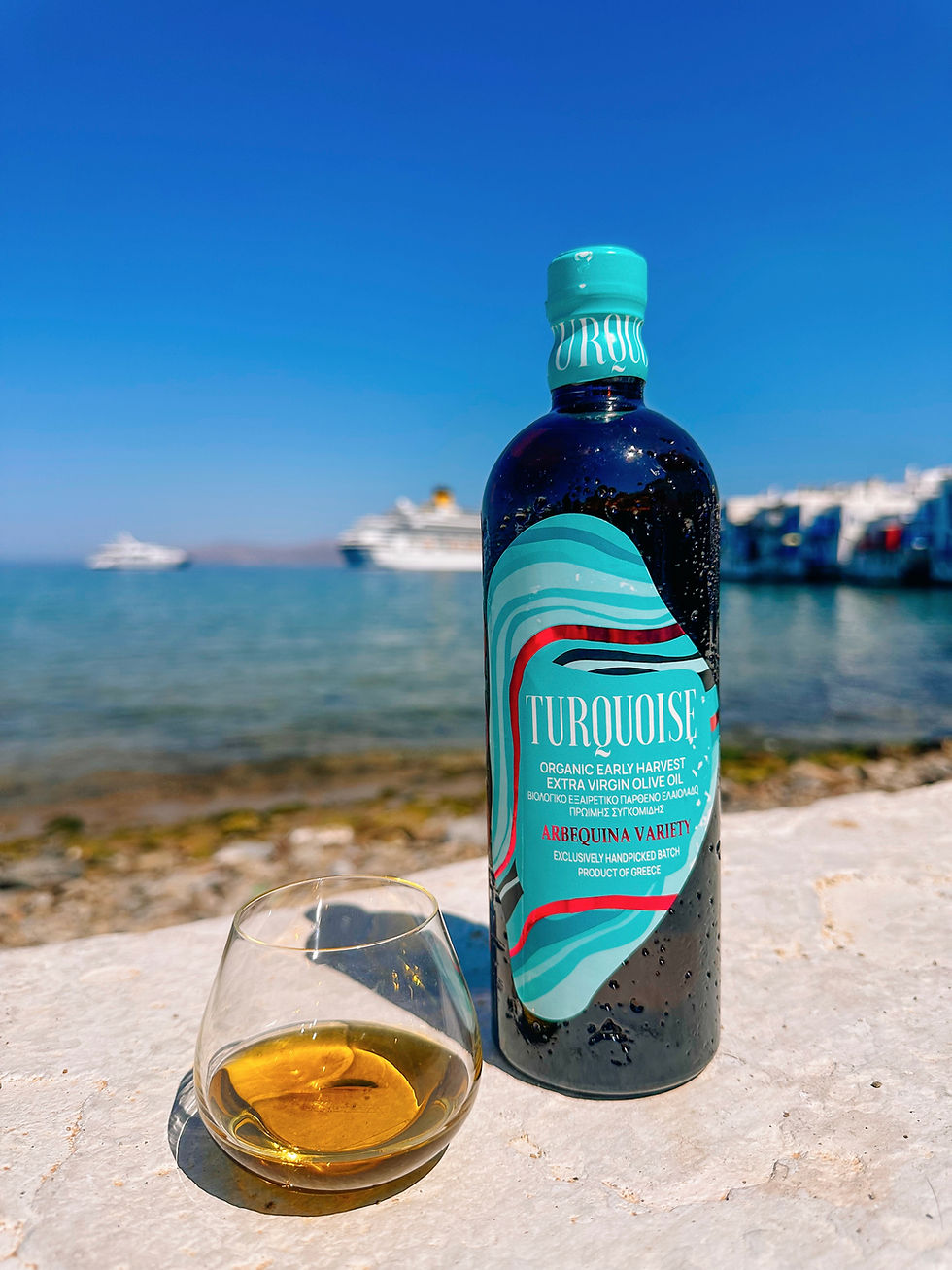The Olive Tree Greatness
- Mykonos Olive Oil Tasting

- Jun 21, 2019
- 2 min read
Olive Tree is a symbol of peace, wisdom, fertility, prosperity, health, luck, victory, stability and tranquillity. Moreover, the olive tree symbolizes the eternal link between man and the earth. No other tree in Greece has been praised, painted, sung as much as the olive tree. It is a tree that loves the sea and the Mediterranean sun, grows even on arid and rocky soils and survives under droughts and strong winds. It has accompanied the Greeks in times of both prosperity and deprivation and has left its imprint in every aspect of their cultural tradition.
Olive trees have existed longer than modern humans. Wild olive leaf fossils from the Greek island of Evia date back 23 million years. At Santorini, 37.000 to 50.000 year old leaf fossils from the olive species Olea europaea have been discovered in the volcanic crater. Humans began to use olive oil in the Middle Neolithic Period, as far back as 4.500 BC, according to traces in a bowl found in Gerani Cave in Rethymno, Crete. The olive oil traces found in Rethymno about 6.500 years ago imply that olive oil was already part of the Cretan diet then, and by 2000 BC the Cretans seem to have begun to exploit the tree systematically, producing olive oil as we know it today. During the time of Homer, the olive tree had already acquired a very important role in the daily life of Greeks. In Classical Athens, it was considered sacred, godsend, and it was protected by the state. The prosperity of Athens during the Golden Age was attributed, among
others, to the olive oil production. The importance of the olive tree to ancient Greeks is highlighted in the ancient texts. Written evidence from that period proves that the olive tree enjoyed great respect and its products were considered beneficial to humans. Homer called olive oil as the “Liquid Gold” and Hippocrates as the “Great Healer”, since he was using it in many of his treatments.
Nowadays in Greece, olive growing is thriving and olive oil is the main product in many areas. Olive trees cover around 60 percent of the cultivated land (approximately 132 million trees). Greece produces around 360 thousand tons of olive oil each year (3rd in the world), 82 percent of it is extra virgin (1st in the world with this ratio). When it comes to consumption Greeks are by far the first in the world. The average olive oil consumption of every single Greek is around 26 liters per person annually and even more than that on the island of Crete, which also boasts one of the world’s highest average life expectancies.
Olive oil is gaining ground & appreciation more and more lately due to its countless health benefits that are being revealed in a never-ending stream of research. But are all olive oils good for our health? What does it mean good or bad olive oil? Does all taste the same? Also, is one olive oil in our kitchen enough? Learning to taste, appreciate, select and pair olive oil with food is one of the most valuable pieces of knowledge that one can offer himself since olive oil is not only an everyday cooking staple but also Mother Nature’s greatest gift to humanity.




Comments